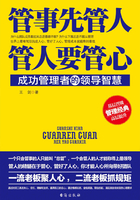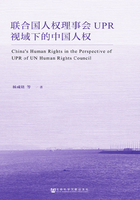Since everything to which motion or rest is natural is in motion or at rest in the natural time, place, and manner, that which is coming to a stand, when it is coming to a stand, must be in motion: for if it is not in motion it must be at rest: but that which is at rest cannot be coming to rest. From this it evidently follows that coming to a stand must occupy a period of time: for the motion of that which is in motion occupies a period of time, and that which is coming to a stand has been shown to be in motion: consequently coming to a stand must occupy a period of time.
Again, since the terms 'quicker' and 'slower' are used only of that which occupies a period of time, and the process of coming to a stand may be quicker or slower, the same conclusion follows.
And that which is coming to a stand must be coming to a stand in any part of the primary time in which it is coming to a stand. For if it is coming to a stand in neither of two parts into which the time may be divided, it cannot be coming to a stand in the whole time, with the result that that that which is coming to a stand will not be coming to a stand. If on the other hand it is coming to a stand in only one of the two parts of the time, the whole cannot be the primary time in which it is coming to a stand: for it is coming to a stand in the whole time not primarily but in virtue of something distinct from itself, the argument being the same as that which we used above about things in motion.
And just as there is no primary time in which that which is in motion is in motion, so too there is no primary time in which that which is coming to a stand is coming to a stand, there being no primary stage either of being in motion or of coming to a stand. For let AB be the primary time in which a thing is coming to a stand.
Now AB cannot be without parts: for there cannot be motion in that which is without parts, because the moving thing would necessarily have been already moved for part of the time of its movement: and that which is coming to a stand has been shown to be in motion. But since AB is therefore divisible, the thing is coming to a stand in every one of the parts of AB: for we have shown above that it is coming to a stand in every one of the parts in which it is primarily coming to a stand. Since then, that in which primarily a thing is coming to a stand must be a period of time and not something indivisible, and since all time is infinitely divisible, there cannot be anything in which primarily it is coming to a stand.
Nor again can there be a primary time at which the being at rest of that which is at rest occurred: for it cannot have occurred in that which has no parts, because there cannot be motion in that which is indivisible, and that in which rest takes place is the same as that in which motion takes place: for we defined a state of rest to be the state of a thing to which motion is natural but which is not in motion when (that is to say in that in which) motion would be natural to it. Again, our use of the phrase 'being at rest' also implies that the previous state of a thing is still unaltered, not one point only but two at least being thus needed to determine its presence: consequently that in which a thing is at rest cannot be without parts. Since, then it is divisible, it must be a period of time, and the thing must be at rest in every one of its parts, as may be shown by the same method as that used above in similar demonstrations.
So there can be no primary part of the time: and the reason is that rest and motion are always in a period of time, and a period of time has no primary part any more than a magnitude or in fact anything continuous: for everything continuous is divisible into an infinite number of parts.
And since everything that is in motion is in motion in a period of time and changes from something to something, when its motion is comprised within a particular period of time essentially-that is to say when it fills the whole and not merely a part of the time in question-it is impossible that in that time that which is in motion should be over against some particular thing primarily. For if a thing-itself and each of its parts-occupies the same space for a definite period of time, it is at rest: for it is in just these circumstances that we use the term 'being at rest'-when at one moment after another it can be said with truth that a thing, itself and its parts, occupies the same space. So if this is being at rest it is impossible for that which is changing to be as a whole, at the time when it is primarily changing, over against any particular thing (for the whole period of time is divisible), so that in one part of it after another it will be true to say that the thing, itself and its parts, occupies the same space. If this is not so and the aforesaid proposition is true only at a single moment, then the thing will be over against a particular thing not for any period of time but only at a moment that limits the time. It is true that at any moment it is always over against something stationary: but it is not at rest: for at a moment it is not possible for anything to be either in motion or at rest. So while it is true to say that that which is in motion is at a moment not in motion and is opposite some particular thing, it cannot in a period of time be over against that which is at rest: for that would involve the conclusion that that which is in locomotion is at rest.















